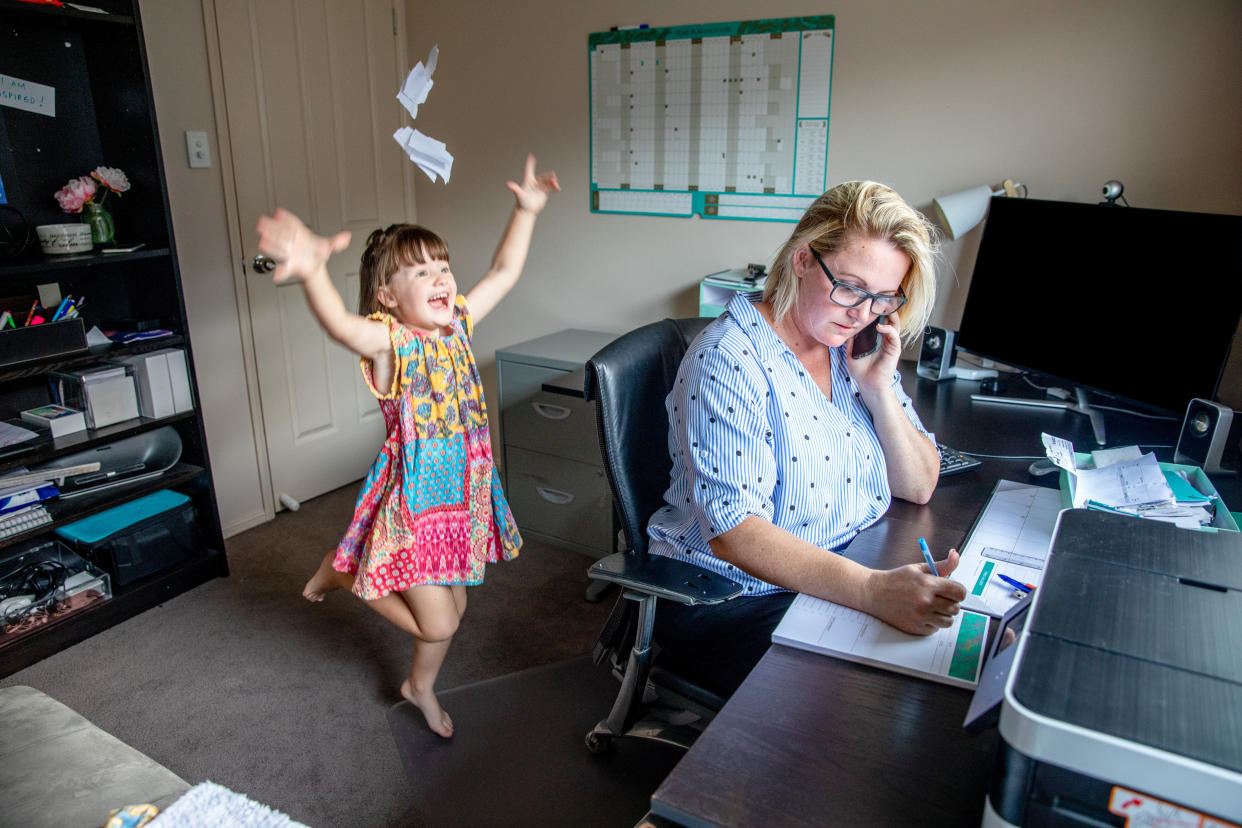Coronavirus: Why it’s normal to feel irritable when working from home under lockdown

We’ve been under lockdown for more than two months and for many, life under quarantine has brought a rollercoaster of emotions. One minute you are feeling OK — but the next, you’re missing your family, friends and even the office you used to work in.
It’s normal to feel annoyed from time to time, whether it’s another “unprecedented crisis” email or a frozen screen during a Zoom meeting. But when you’re working from home during a global pandemic, there appear to be endless opportunities to lose your cool.
For some, the reasons are obvious. It’s hard being separated from loved ones and and looking after children who are out of school while working from home. But it’s also normal to feel irritable in general — whether it’s frustration at the situation, the uncertainty of the future or irritation at other people.
In February 2020, before many European countries introduced coronavirus quarantine measures, The Lancet published a review of 24 studies documenting the psychological impact of quarantine. It found people who are quarantined are very likely to develop a range of symptoms of psychological stress and disorders, with low mood and irritability particularly common.
READ MORE: Will we have a legal right to work from home in the future?
“Every one of us is living with slightly different circumstances and facing different challenges throughout lockdown,” says Kirsty Lilley, mental health specialist at wellbeing charity CABA. “We’ve also all come into this experience with varying levels of mental and physical health, so it’s fair to say that everyone will be feeling slightly different right now.
“Two of the most common emotions we’re all experiencing right now are anxiety and irritability. Both are completely understandable given the current situation and will manifest themselves differently in each of us,” Lilley explains.
“Irritability is linked to our threat system and is usually a sign that we are becoming overwhelmed with current stresses. Ongoing change to our usual routines, poor sleeping patterns, juggling family and work concerns are all contributors as to why people are experiencing several emotions at once.”
Accepting that we are living through difficult times and cutting yourself some slack is important. It’s normal to feel more annoyed, irritable or angry than usual — and you can’t change that overnight. But if you want to try and manage your feelings, the first step is to understand them — and your triggers — a bit better.
Keeping a diary can help you identify situations and triggers that cause frustration, anxiety or irritability, such as Zoom calls or checking your emails first thing in the morning. Once you’ve recognised what the problem is, you can make changes — such as keeping meetings brief and to the point, avoiding work during certain hours or giving yourself more frequent breaks.
If you can feel yourself about to boil over, take yourself away and have a few minutes to yourself. Breathing exercises can help calm you down when things become too much — and give you some much-needed headspace.
“It’s also very important to communicate how you feel, so those around you are aware that you’re feeling overwhelmed and can provide support and compassion,” Lilly says. “We need each other’s care and understanding right now as dealing with these feelings alone is unlikely to be helpful to yourself and others.”
READ MORE: Should we have the right to disconnect when we’re working from home?
We all have times of feeling overwhelmed by what’s going on around us and the challenges we are facing. We’re worried about vulnerable relatives, our health and the future. Millions of people have lost jobs and incomes or are unable to do the things they love.
“Ease up on yourself, and remember you’re living through a global crisis and recognise when your threat system is activated. This will likely feel as though your thoughts are being pulled away into ruminations of the past or anxiety for the future,” Lilley adds.
“Allow yourself to have bad days, knowing that as with all things they will pass, and although unpleasant they are a sign that you’re connecting deeply with the things that are happening outside of you, many of which are outside your control.”



